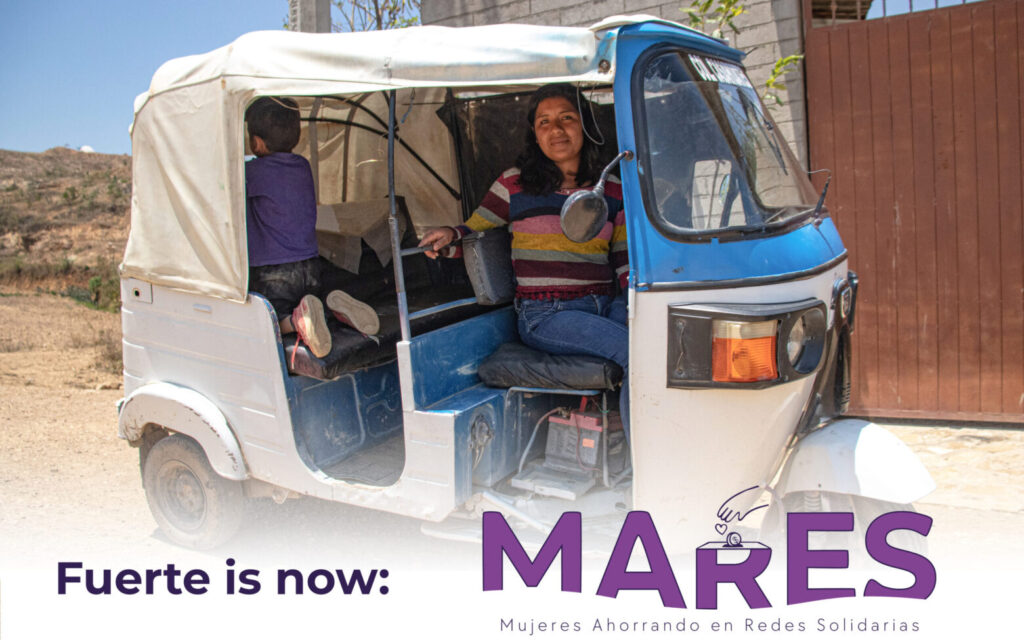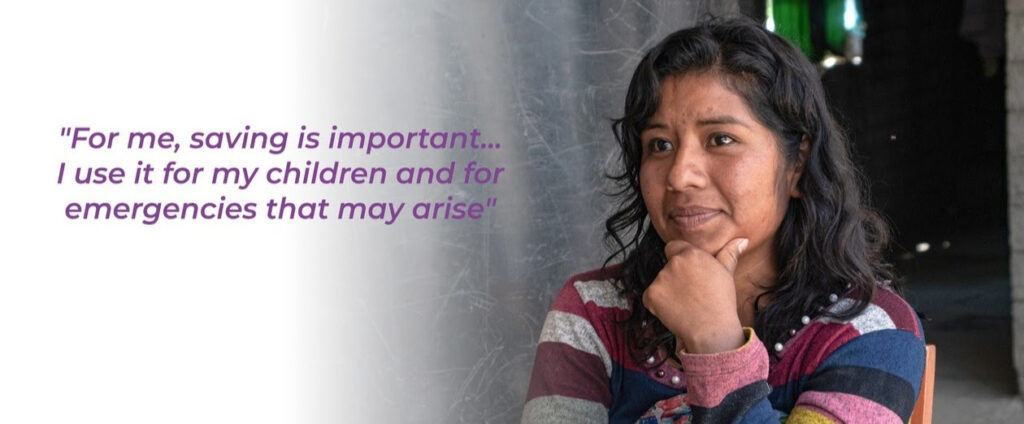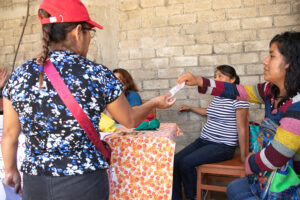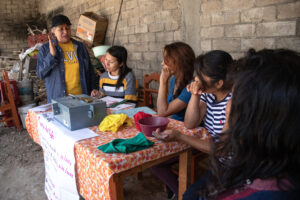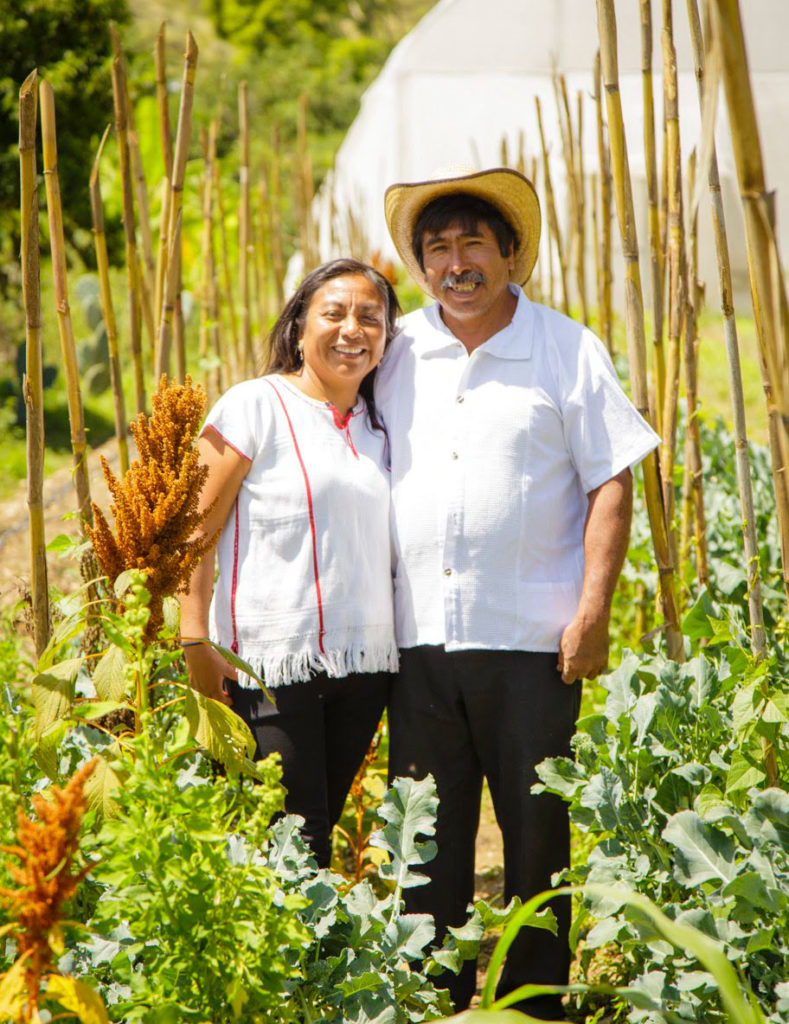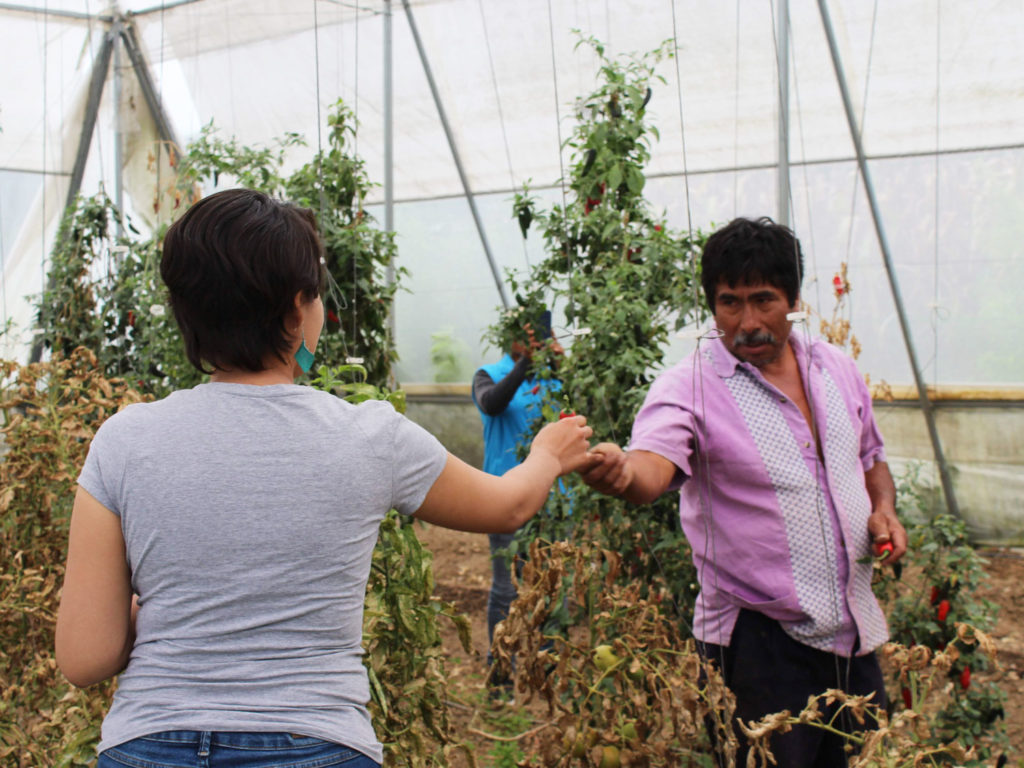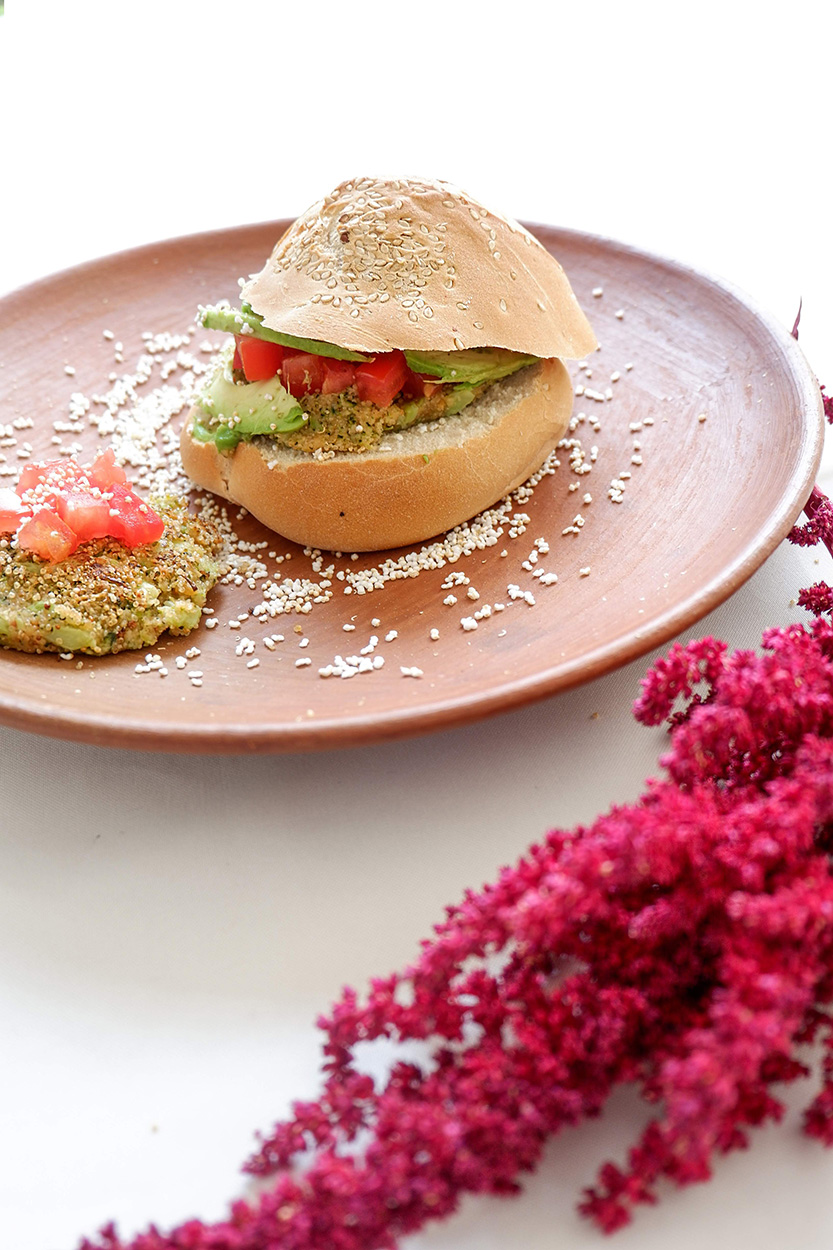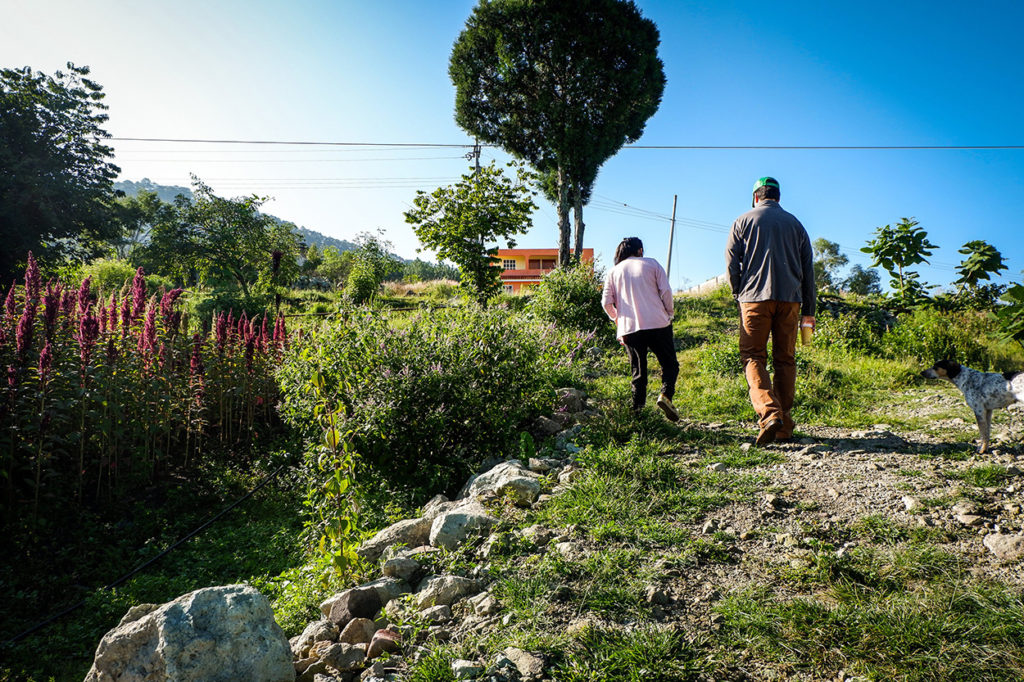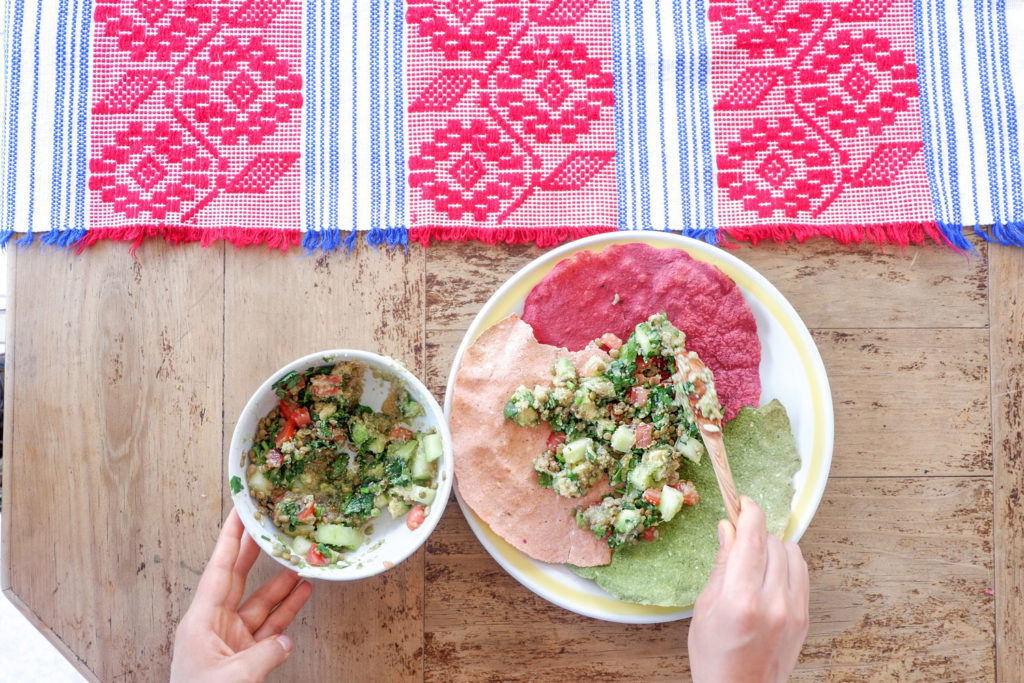
As part of our new phase as an organization and thanks to funding from the Alfredo Harp Helú Foundation, we have resumed part of the “Healthy Families” program with more than 50 low-income women who are part of the MARES project in the Casahuates, Manantial, Cuatro Milpas and La Gotera neighborhoods in the eastern zone of Zaachila.
The activities include monthly training to integrate the use of family eco-techniques for the production of vegetables and the cultivation, processing and consumption of amaranth to promote food security and improve the nutrition of women and their families.
Alejandra testimony
Alejandra, a mother of three, volunteers as a cook at La Gotera neighborhood’s elementary school. Alongside Maria, another participant in the “Familias Saludables” program, they have implemented the recipes they learned during the sessions in the school canteen. Their renewed passion for healthier cooking inspired them to participate in a local nutrition contest organized by the schools in the area.

Alejandra’s daughter immersed herself in and closely followed the seedling transplant process, even assisting with watering. By the end of the session, she requested a pot for herself.
“This workshop I learned that growing my own vegetables at home will bring me great benefits.”
Testimonial
“I had never worked in this way before, as a team”
Testimonial
The “Healthy Families” activities preceed the savings sessions of the MARES project (Women Saving in Solidarity Networks), a financial autonomy initiative that aims to help women unlocking their potential, overcoming gender role the limitations and ensurin their economic and social participation within and beyond their communities.
“In addition to providing some economic certainty to women in the area, these sessions accompany families to improve their nutritional status by cultivating and consuming food produced at their homes”
Testimonial
Up to this point, the sessions have concentrated on topics such as cooking vegetables, making homemade compost, preparing Hot Cakes with amaranth, and growing vegetables in pots.









